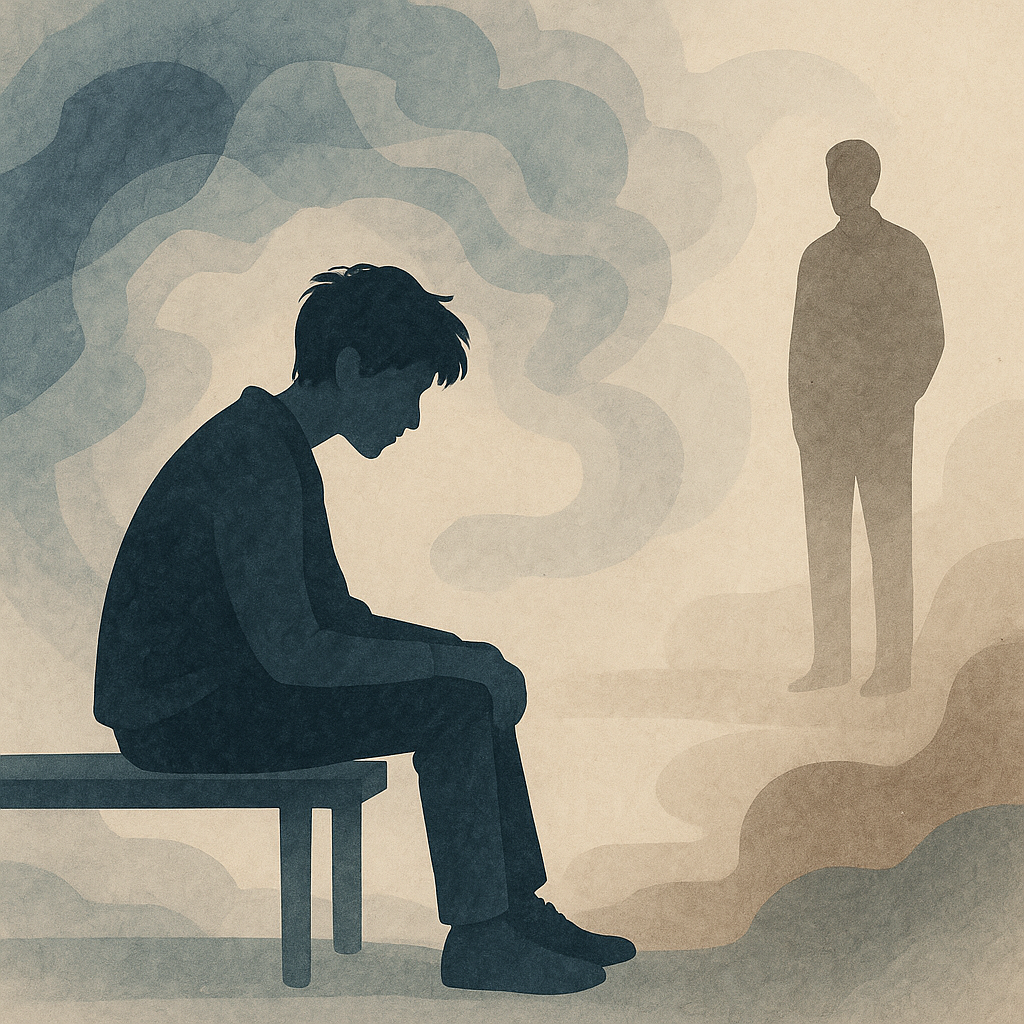Supporting a teen in crisis starts with understanding. Recognising the signs of a mental health struggle early can open the door to connection, safety, and timely support. Adolescence is a time of emotional growth and vulnerability. While mood changes are expected, certain behaviours may signal something more serious. Parents are often the first to notice these changes, and are the best placed to recognise a mental health crisis, but it’s not always clear when to step in or what to look for.
This guide offers insight into recognising the signs of distress, the pressures teens face, and the actions parents can take to support their teens’ mental health and wellbeing.
Spotting the Signs: What Parents Should Watch For
Changes in behaviour can be gradual or sudden. Parents may notice their teenager becoming more withdrawn, irritable, or secretive. A drop in academic performance, avoiding social activities, or losing interest in hobbies can also be indicators that something is wrong.
Common signs that may point to a mental health issue include:
- Ongoing sadness or hopelessness
- Changes in appetite or sleep patterns
- Physical complaints with no medical explanation (headaches, stomach aches)
- Self-isolation from family and friends
- Increased agitation or emotional outbursts
- Risky behaviour or substance use
While some emotional ups and downs are part of adolescence, persistent or disruptive changes may be a sign of deeper distress. Meeting these moments with curiosity and care can be the first step toward real support.
Understanding the Pressures That Affect Teen Mental Health
Teenagers today face unique challenges that can affect their emotional well-being. These include:
- Pressure from school and exams
- Bullying (online and offline)
- Difficulties in friendships or relationships
- Social media and the pressure to appear perfect
- Family dynamics or unresolved conflict
- Past trauma or experiences of abuse
By recognising how these stressors impact teenage mental health, parents can respond with greater care, curiosity, and understanding, creating space for connection, emotional safety, and early support when it’s needed most.
When It’s Time to Seek Professional Help
As a parent, it’s natural to wonder: Is this just a phase, or something more? The teenage years are marked by emotional ups and downs, but when distress becomes persistent or begins to impact your child’s daily life, such as school, relationships, or their sense of self, it may be time to seek additional support.
It can feel overwhelming or even intimidating to reach out to mental health professionals. But doing so isn’t a sign of failure; it’s an act of love, commitment, and deep care. At Khiron Clinics, we understand the courage it takes to seek help, especially when you’re holding so much uncertainty on your own.
You might consider professional support if your teen:
- Talks about feeling hopeless or worthless
- Expresses thoughts of self-harm or suicide
- Struggles to manage basic routines, like going to school or getting out of bed
- Shows sudden, extreme mood changes or signs of disconnection from reality
- Demonstrates changes in behaviour that seem out of character and have no clear cause
When these signs appear, early intervention can make all the difference. Left unaddressed, emotional distress can deepen—but with the right support, healing is absolutely possible.
At Khiron Clinics, we provide trauma-informed, integrative care tailored to each adolescent’s needs. Our team offers comprehensive assessments, relational safety, and therapeutic approaches that support not just symptom relief, but long-term healing for both teens and their families.
Responding to Suicide Risk: What Parents Should Know
Few things are more frightening for a parent than noticing signs that their child may be thinking about ending their life. Suicidal thoughts often emerge when teens feel trapped, overwhelmed, or disconnected from hope—and they don’t always express this pain in obvious ways.
At Khiron Clinics, we believe it’s essential to look beyond behaviour and stay attuned to what might be happening beneath the surface. Your child might not say they’re struggling directly—but their actions, mood, or energy may be telling the story.
Warning signs can include:
- Talking or writing about death, or expressing a wish to disappear
- Giving away treasured belongings or saying goodbye
- Creating drawings or stories about dying
- A sudden sense of calm after a period of intense sadness
- Withdrawing from friends, family, or activities they once enjoyed
Certain risk factors may also increase vulnerability, such as a previous suicide attempt, a family history of suicide, chronic bullying, or unresolved trauma.
If you see these signs—or even if you just feel something isn’t right—don’t wait. Open the door to conversation. You don’t have to have all the answers; what matters most is that your teen knows they’re not alone, and that help is available.
If you notice these signs, seek immediate support from a mental health professional. or crisis support service. Encourage open conversations, listen without judgement, and reassure your teen that help is available. Immediate action can save lives.
Everyday Steps Parents Can Take to Support Teen Mental Health
Supporting your teenager’s emotional wellbeing doesn’t always require a crisis or diagnosis. In fact, some of the most powerful interventions happen in everyday moments—through how you show up, listen, and hold space for them to be exactly where they are.
Teen mental health is shaped not just by big events, but by the emotional climate at home, the consistency of routines, and the sense of safety in relationships. At Khiron Clinics, we often remind families that healing starts with connection.
Here are a few everyday ways parents can help nurture resilience and regulation:
- Set aside time for regular check-ins—ask questions, and listen without jumping in to solve
- Honour their perspective, even when you don’t fully understand it
- Create a calm, predictable home environment that feels safe and grounded
- Support routines around sleep, meals, movement, and rest
- Encourage screen breaks and time outdoors or with peers in real life
- Model healthy coping strategies—like managing stress, naming emotions, or asking for help
Even small moments of attunement can help your teen feel seen, valued, and supported. And when things feel too big to hold alone, it’s okay to reach out for help.
If you’re unsure about what your child needs, or if your efforts don’t seem to be making a difference, you don’t have to figure it out alone. Our team at Khiron Clinics is here to walk alongside you, offering guidance, therapeutic care, and deep understanding every step of the way.
Professional Guidance That Respects Families
Khiron Clinics offers trauma-informed services tailored for adolescents. Our approach includes:
- Personalised therapy sessions
- Family support and guidance
- Specialist care for complex trauma and emotional distress
We recognise that no two families are the same. Our clinicians work with both young people and parents to rebuild trust, emotional safety, and a path forward. Whether you are just beginning to ask questions or already navigating serious concerns, you are not alone.
Final Message for Parents
Recognising a mental health crisis in teenagers takes awareness, patience, and action. By staying attuned to your teen’s emotional needs and seeking timely support, you can make a real difference. You don’t need to have all the answers—just the willingness to listen, ask for help, and keep showing up.
If you’re concerned about your teen, contact Khiron Clinics. Our team is here to support families with care that is grounded in understanding, expertise, and hope.






